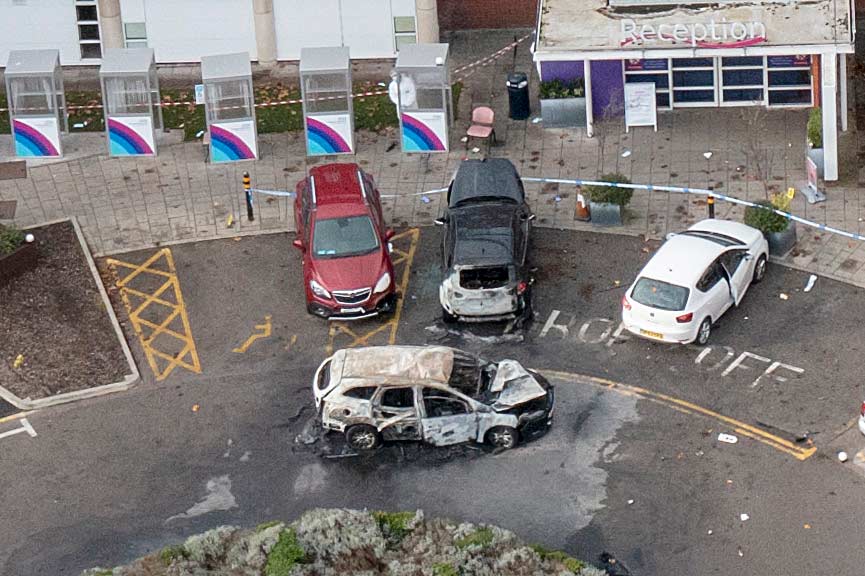In the brief time before the horrifying scenes outside a maternity hospital in Liverpool were supplanted by other less difficult preoccupations, ordinary people were asking impertinent questions. How was it possible for Emad Al Swealmeen to deceive so many people? Why was he not removed from a country he had no right to be in after his asylum application was rejected? How come he could build a shrapnel bomb packed with ball bearings in his kitchen without anyone, including the police noticing? Why are we incapable of stopping thousands of undocumented people, mainly young men, arriving on our shores to claim asylum as Al Swealmeen did, fleeing persecution from – checks notes – France?
These people reckoned without Britain’s institutional officer class, that well-seated confluence of progressive organisations and agencies that are always on standby with hearts, flowers and sometimes barely disguised condescension if the narrative gets a bit uppity.
So the Refugee Council hit back on Government claims that 70% of those crossing the channel were not genuine refugees. Met Assistant Commissioner Matt Jukes, the national head of counter terrorism policing, took to the screens to remind people that the vast majority of those plotting terrorist atrocities are British-born or raised and not asylum seekers. A criminology professor claimed online that most asylum seekers operated under the same ‘moral framework’ as parents trying to get their kids into a good school. The Bishop of Leeds went on the airwaves to preach that thinking many of these people might be gaming the system to come here indicated a ‘lack of empathy or imagination’.
But beyond the rarefied atmosphere of the Bishop’s residence, it’s frankly all too easy to imagine the consequences of an Islamist extremist succeeding in detonating a bomb packed with ball bearings, either inside a maternity hospital full of women and children, or amid veterans and civilians commemorating our war dead. We don’t even need imagination, we’ve been here before. In 2017, asylum seeker Ahmed Hassan tried to detonate a home made IED on a packed tube train with catastrophe avoided only because the terrorist got the explosives recipe wrong. Months earlier failed asylum seeker, Rachid Redouane was one of three terrorists shot dead after a murderous rampage on London Bridge and Borough market. Just last year, the terrorist Khari Saadallah, a failed asylum seeker listed for deportation for years murdered three men enjoying a summer’s evening in a Reading park. Prosecutors said: ‘He believed that in killing as many people as possible that day he was performing an act of religious jihad’.
While it is right to say that most terrorist acts are committed by people born here, these harrowing examples underline the impotence of the state to control threats from people whose deportation was sometimes mandated many years ago. This matters for several reasons that ought to be clear to government and to those wishing fervently this near miss can be put back to sleep.
To be clear, we need an asylum system that reflects our moral obligation to the world as a civilised country providing a refuge for those genuinely fleeing persecution. Our decision to accept 5,000 Afghan nationals at risk after the West’s rout in that country is an example of this obligation in action. It will be harder than ever to discharge that responsibility if public sentiment is drowned in progressive hogwash after our failure to secure our borders, by admitting and then failing to remove people who are intent on repaying our hospitality with mass murder. This failure matters. Extreme right-wing ideologues lurk on the fringes of this feebleness ready to capitalise on it with conspiracy theories and calls to arms.
Moreover, whether migrants arrive by official means or off an inflatable raft from Calais, the whole current ‘system’ is built on a begrudging semi-destitution that abandons people in a bureaucratic maze, denies them the chance to work and leaves assimilation to charities operating on a shoestring dealing with huge unmet need, including the precursors to radicalisation. Whatever your views on migration policy, brutalised people fleeing warzones sold on a false prospectus of hope and welcome by people traffickers are going to need more than vouchers and a bedsit to ensure they don’t descend into the sort of despair and alienation that drives violent extremism.
But the straightforward conversation that we need about this situation can’t happen. The vast majority of asylum seekers with some help and compassion could and do contribute much to this country. But to stifle the legitimate concerns of ordinary people, aghast and bewildered by a profoundly broken asylum and border system, only plays into the hands of racists. We do not want to be there.
Click here to subscribe to our daily briefing – the best pieces from CapX and across the web.
CapX depends on the generosity of its readers. If you value what we do, please consider making a donation.


